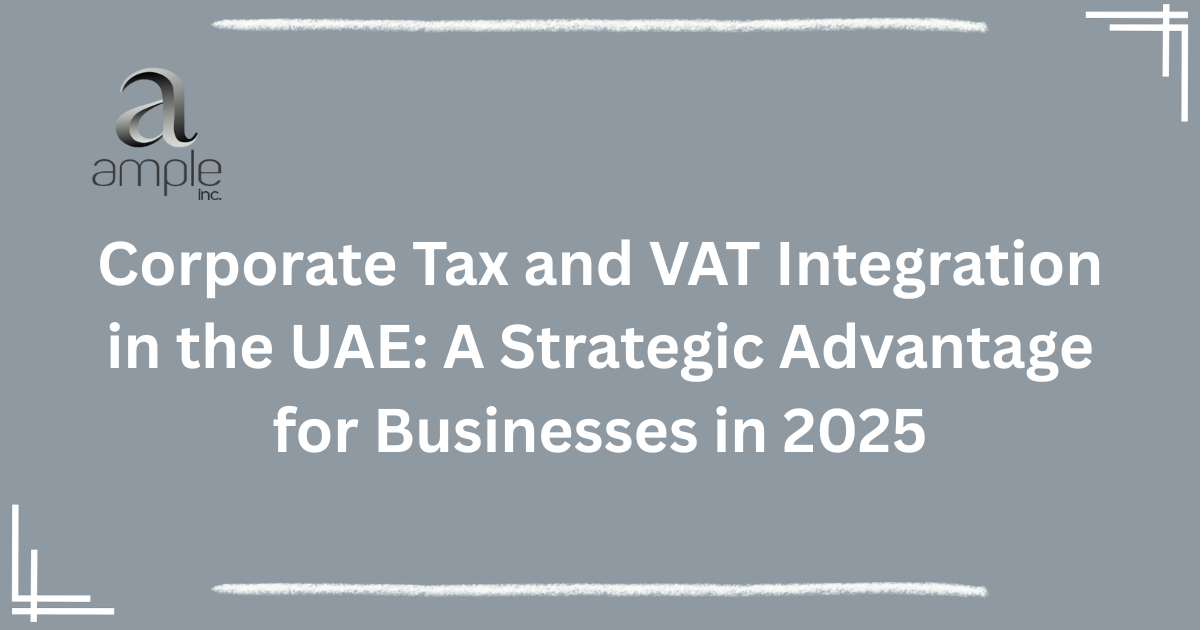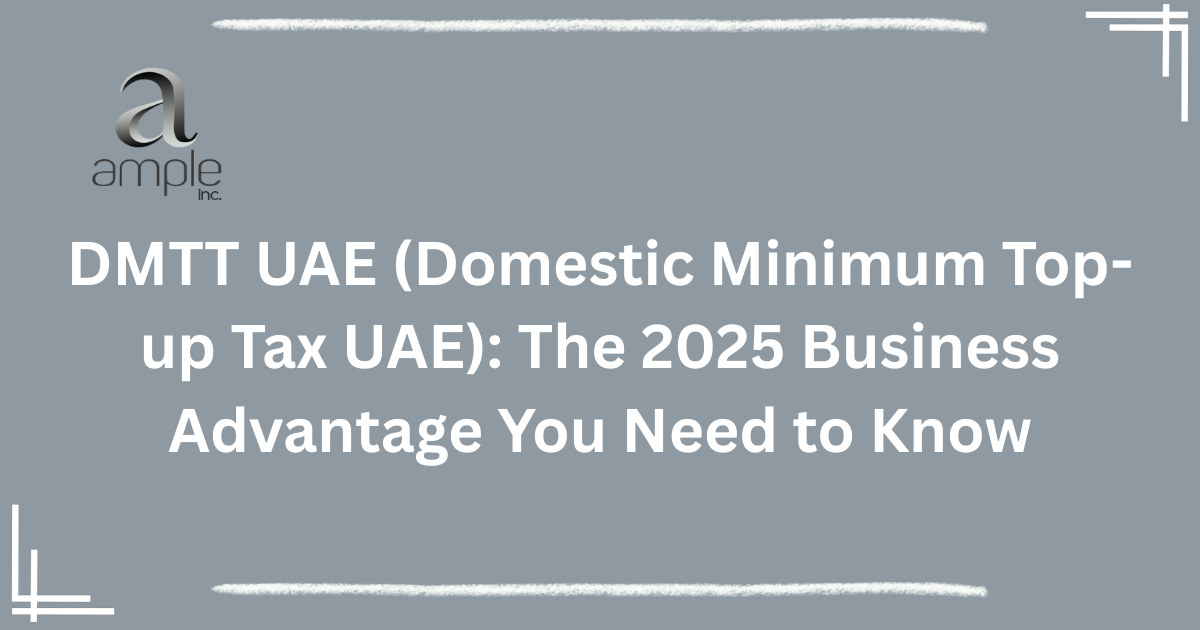Introduction to the Corporate Tax UAE REIT Update
The real estate investment sector in the United Arab Emirates (UAE) is undergoing a significant regulatory shift following the issuance of the Corporate Tax UAE REIT Update by the Federal Tax Authority (FTA) on 1 May 2025. This comprehensive update outlines the tax obligations, exemptions, and compliance requirements for Real Estate Investment Trusts (REITs) and their resident and non-resident investors. With the Corporate Tax Law (Federal Decree-Law No. 47 of 2022) in full effect and new Cabinet Decisions enacted in 2025, stakeholders must now adapt to a more structured taxation framework.
This article provides an in-depth look into the new tax regime, explaining its scope, application, and the necessary steps for compliance. Whether you’re an investor, tax advisor, REIT manager, or corporate consultant, understanding this update is crucial for ensuring adherence to the latest UAE tax regulations.
Background of Corporate Tax in the UAE
The UAE’s shift toward implementing a corporate tax framework reflects its goal to align with global tax standards, increase transparency, and diversify government revenue streams. The introduction of Federal Decree-Law No. 47 of 2022 marks the beginning of a new era for business taxation in the country. This law came into effect for tax periods starting on or after 1 June 2023.
To support its implementation, Cabinet Decision No. 34 and 35 of 2025 were released, focusing on Qualifying Investment Funds, Qualifying Limited Partnerships, and defining nexus rules for non-resident investors. The Corporate Tax UAE REIT Update is a key clarification that outlines how REITs and their investors will be taxed under this new system.
What Is a REIT and How Does It Operate in the UAE?
A Real Estate Investment Trust (REIT) is a specialized investment vehicle that enables both individual and institutional investors to pool their capital to invest in a diversified portfolio of income-generating real estate assets. These assets typically include commercial properties such as office buildings, shopping malls, warehouses, residential complexes, hotels, and industrial facilities. By design, REITs offer a structured and regulated way for investors to participate in the real estate sector without having to buy or manage physical properties themselves.
REITs operate by acquiring, managing, and in many cases developing properties, while generating revenue primarily through rental income or property sales. The profits earned from these operations are usually distributed to investors in the form of dividends, which makes REITs an attractive investment option for those seeking stable, long-term income streams.
In the United Arab Emirates (UAE), REITs can either be publicly listed on a recognized stock exchange, allowing for easy buying and selling of shares, or they can be privately held and offered to a limited group of qualified investors. The establishment and operation of REITs in the UAE are governed by financial regulations issued by authorities such as the Securities and Commodities Authority (SCA) and are subject to licensing and compliance standards that ensure transparency and investor protection.
REITs are particularly appealing because they offer liquidity, diversification, professional management, and access to large-scale real estate projects that would otherwise be difficult for an individual to invest in directly. In addition, REITs often provide tax advantages in many jurisdictions, making them popular with global investors.
However, under the newly issued Corporate Tax UAE REIT Update, the regulatory and tax landscape for REITs in the UAE is evolving. The update, released by the Federal Tax Authority (FTA), introduces specific conditions under which REITs can apply for exemption from corporate tax. To qualify for this exemption, a REIT must meet a detailed set of criteria related to its structure, activities, asset value, investor base, and distribution policies.
Importantly, while a REIT itself may be exempt from corporate tax if it qualifies as a “Qualifying Investment Fund”, this does not automatically exempt the investors in the REIT from taxation. The Corporate Tax UAE REIT Update explicitly outlines that resident and non-resident juridical investors may still be liable to pay corporate tax on a portion (typically 80%) of the REIT’s immovable property income, depending on the REIT’s distribution practices and the investor’s ownership status.
This distinction is crucial because it shifts the tax focus from the fund to its investors, thereby increasing the need for both REIT managers and investors to fully understand and comply with the tax reporting requirements introduced under the update. As REITs continue to grow in popularity and scale across the UAE, the Corporate Tax UAE REIT Update ensures that these vehicles remain transparent, compliant, and integrated into the broader tax system of the country.
Key Provisions of the Corporate Tax UAE REIT Update
1. Exemption for Qualifying REITs
A REIT may be exempt from corporate tax if it qualifies as a Qualifying Investment Fund and fulfills the following conditions:
- It meets the requirements under Article 10(1) of the Corporate Tax Law.
- It complies with Article 4(1) of Cabinet Decision No. 34 of 2025.
- It submits a formal application to the FTA.
- It provides full disclosure and transparency to its investors.
The exemption is effective from the start of the tax period specified in the application or another date determined by the FTA.
2. Taxation of Investors in Exempt REITs
Effective 1 January 2025, investors who are resident or non-resident juridical persons (i.e., entities, not individuals) must include 80% of their proportionate share of the REIT’s immovable property income in their taxable income.
This applies regardless of whether the REIT itself is exempt from corporate tax.
3. Distribution Rule and Tax Relief
If a REIT distributes 80% or more of its immovable property income within 9 months of its financial year-end, and an investor has disposed of their entire shareholding before the distribution, the investor is not liable for tax on that income.
This rule is designed to avoid double taxation and encourage timely distribution of earnings.
4. Distributing vs. Non-Distributing REITs
- Distributing REIT: Pays out 80% or more of its income within 9 months of year-end.
- Non-Distributing REIT: Does not meet the above threshold.
The investor’s tax obligations differ depending on whether the REIT is distributing or not.
5. Natural Persons Are Exempt
If an investor is a natural person (i.e., an individual), they are not required to include REIT income in their corporate taxable income. This holds true even if the individual holds the REIT investment as part of a business activity.
6. Nexus Rules for Non-Resident Investors
Non-resident juridical investors may be deemed to have a nexus in the UAE if:
- The REIT does not distribute income as required, and
- The investor owns shares in the REIT.
Having a nexus means the non-resident entity is subject to UAE Corporate Tax and must register with the FTA.
7. Avoidance of Double Taxation
Dividend income received by investors that has already been included in their taxable income (under the 80% rule) is excluded from taxation again.
This mechanism ensures that income is not taxed twice at the investor level.
Calculation of Immovable Property Income for REITs
“Immovable property income” refers to net realized income derived from leasing, selling, or using real estate assets in the UAE.
This calculation:
- Excludes unrealized gains/losses (e.g., fair value adjustments).
- May incorporate tax depreciation as per FTA guidance.
- Must be based on the REIT’s financial statements.
Investors must prorate this income based on their ownership interest and holding period.
Compliance Obligations
For REITs:
To maintain tax-exempt status, REITs must:
- Provide detailed data to investors (income, distributions, tax depreciation, etc.).
- Confirm whether they are distributing or non-distributing.
- File tax exemption applications and maintain accurate records.
For Investors:
Juridical investors must:
- Adjust taxable income according to their REIT income share.
- Register for corporate tax if a UAE nexus is created.
- Retain proof of ownership and financial disclosures.
For Non-Residents:
- Appoint a tax agent if necessary.
- Comply with FTA registration and filing requirements.
Disposal of REIT Ownership
When a juridical investor disposes of REIT shares:
- Gains are exempt if Participation Exemption conditions are met.
- If not, any previously taxed undistributed income is deducted from the gain to avoid double taxation.
For non-resident investors, gains on disposal are not taxable unless a nexus is established.
Corporate Tax UAE REIT Update: Real-Life Examples
Example 1: Taxable Income Inclusion
Investor A holds 10% of a distributing REIT that paid out 80% of its property income by September 2026. The REIT’s FY ends December 2025.
Tax impact: Investor A includes 10% of 80% of the REIT’s 2025 income in their 2026 taxable income.
Example 2: No Tax Due on Disposed Shares
Investor B sells all REIT shares in March 2026 before the REIT distributes earnings in September 2026.
Tax impact: Investor B does not include any REIT income in taxable income.
Strategic Implications of the Corporate Tax UAE REIT Update
This Corporate Tax UAE REIT Update is not just a tax formality—it directly impacts investment structures, fund flows, and profit realization strategies for institutional and cross-border investors.
Key takeaways:
- Align tax reporting calendars with REIT distributions.
- Monitor REIT compliance to ensure investor exemptions.
- Understand UAE nexus implications for global investors.
Conclusion
The Corporate Tax UAE REIT Update represents a major milestone in the UAE’s fiscal policy. By defining how REIT income is taxed and under what circumstances exemptions apply, the FTA is ensuring consistency, transparency, and alignment with global tax norms.
Whether you’re a REIT manager, legal advisor, or investor, staying informed and compliant is critical in this evolving environment. With tax periods from 1 January 2025 now falling under the new regime, proactive planning and professional consultation are key.
Corporate Tax UAE REIT Update is more than just a regulation—it’s a roadmap for smarter investing in the UAE real estate sector.
Need Help with Corporate Tax?
If you’re navigating the complexities of Corporate Tax under the UAE REIT regime, expert guidance can make all the difference. At Ample Inc, we specialize in helping businesses stay compliant while optimizing their tax strategies.
Whether you’re managing a Real Estate Investment Trust (REIT), preparing for corporate tax filings, or planning ahead for 2025 updates — our experienced team is here to support you every step of the way.



